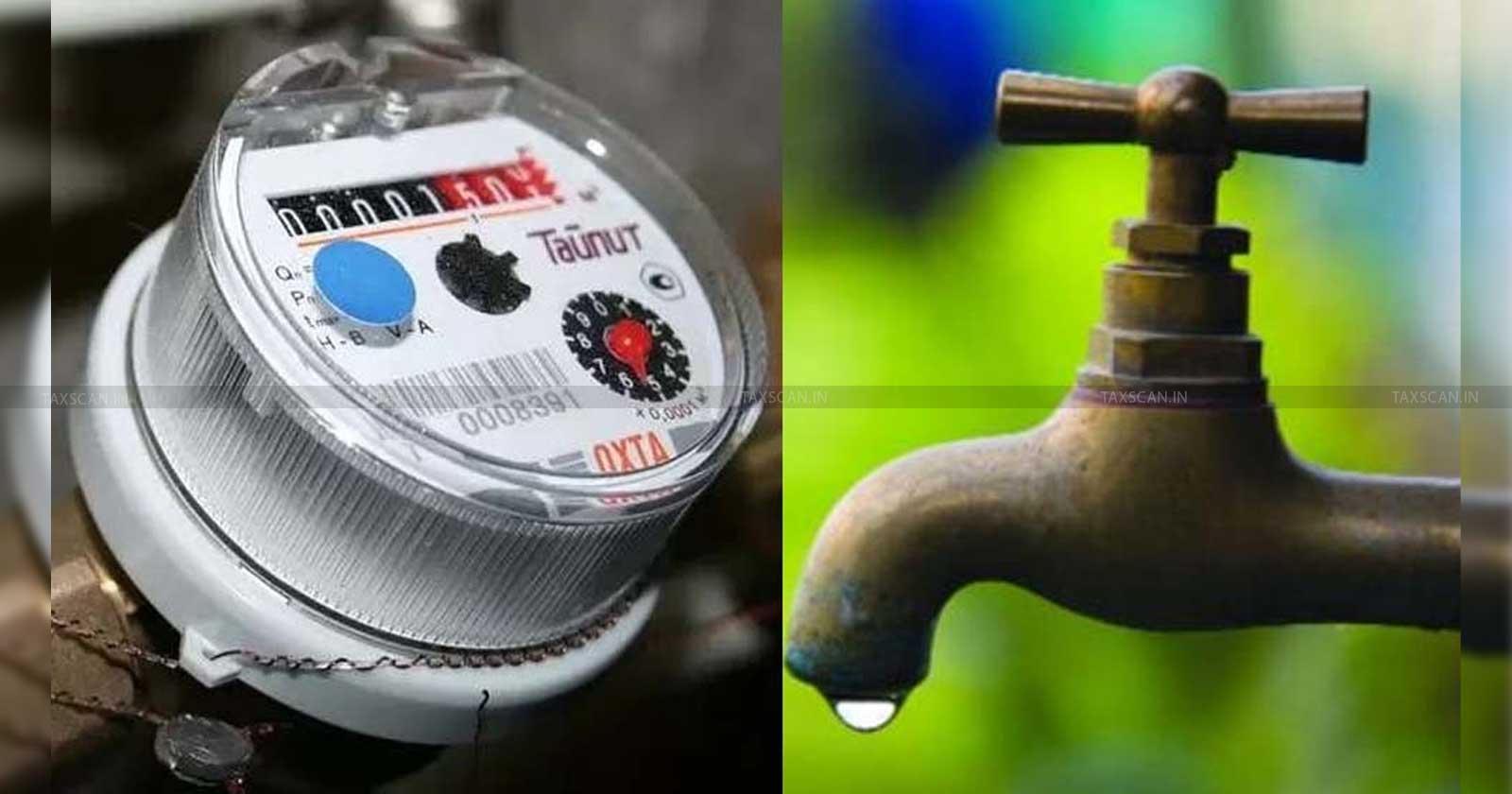Occupier liable to Pay Water Tax even w/o Consumption of Water: Bombay HC [Read Order]
It was Petitioner’s contention that since water was not actually consumed by it during the time when the supply was disconnected, it is not liable to pay water tax to the Municipal Corporation

Bombay High Court – water tax – property water tax – water benefit tax – water tax payment – taxscan
Bombay High Court – water tax – property water tax – water benefit tax – water tax payment – taxscan
The Bombay High Court recently held that property owners must pay water tax and water benefit tax, regardless of whether the property's owner or occupier uses the water facility.
MARS Enterprises, the petitioner had undertaken redevelopment of the building at 5 Battery Street, Gordon House, Behind Regal Theatre, Mumbai, The building was originally owned by Mr. Manu Narang, after whose death, the same has devolved upon his heirs, who run business under the name MARS Enterprises. A water connection was provided to the building before undertaking the exercise of redevelopment.
Ready to Grow? Choose a Course That Fits Your Goals!
Petitioner requested for disconnection of water supply vide letter dated 9 June 1995 and the Municipal Corporation addressed letter dated 4 November 1997 to Petitioner informing about disconnection of the water supply.
It appears that Petitioner used water tankers during the course of redevelopment of the building and after completion of construction, it applied for water connection. In the above background, Petitioners received Bill from the Municipal Corporation on 6 February 2004 demanding total property tax of Rs. 21,62,245/- which included levy of ‘water tax’ in Column No. 2 of Rs.8,77,042/- and levy of ‘water benefit tax’ of Rs. 1,68,662/-. It also included levy of sewerage tax.
Ready to Grow? Choose a Course That Fits Your Goals!
It was Petitioner’s contention that since water was not actually consumed by it during the time when the supply was disconnected, it is not liable to pay water tax to the Municipal Corporation.
The full bench, comprising Justices Atul Chandurkar, Manish Pitale, and Sandeep Marne, was addressing a reference made by a single judge in 2007, which framed three key questions:
1. Does the Corporation have the authority to levy tax under Section 140(a)(i) of the Mumbai Municipal Corporation Act on the actual supply of water?
2. Can the water benefit tax under Section 140(a)(ii) of the Act be imposed regardless of actual water consumption, since it pertains to system maintenance?
3. Is the Corporation entitled to levy a fixed tax in addition to the water charge for actual water consumption?
Ready to Grow? Choose a Course That Fits Your Goals!
In this case, Advocates Arup Dasgupta, Sonam Ghiya, and Drshika Hemnani, instructed by Jhangiani Narula & Associates, represented MARS Enterprises. Advocates SA Bhalwal and Kundanlal Patil, instructed by Vyas & Bhalwal, appeared for ONGC. Senior Advocate Anil Sakhare, along with Advocates Rohan Mirpurey and Sunil Sonawane, represented the MMCGM.
The ruling arose from two petitions, one by MARS Enterprises, which redeveloped a property in South Mumbai, and the other by Oil and Natural Gas Corporation (ONGC) regarding its building in Bandra.
Ready to Grow? Choose a Course That Fits Your Goals!
Both challenged the notices from the BMC demanding water tax and water benefit tax. The petitioners argued that they did not consume the water supplied by the BMC; MARS Enterprises even applied for disconnection and relied on water tankers.
However, the BMC maintained that water tax and water benefit tax could be levied regardless of water consumption, as these taxes fund the provision and maintenance of water services.
The judges observed that Sections 140 and 141 of the Mumbai Municipal Corporation Act, 1888, empower the civic body to impose a 'water tax' for making water supply facilities available in the area and a 'water benefit tax' to cover expenses for infrastructure maintenance and operation.
Ready to Grow? Choose a Course That Fits Your Goals!
The bench clarified, "Property taxes are mandatory, and the obligation to pay water tax and water benefit tax arises regardless of whether water is consumed on the premises. The Municipal Corporation can levy 'water tax' under Section 140(1)(a)(i) of the MMC Act once the water supply facility is available to the property owner or occupier, irrespective of actual water consumption. Similarly, the 'water benefit tax,' intended for infrastructure maintenance, is also a component of property tax and can be levied on the same grounds as 'water tax.'"
Regarding the third question of whether water tax and water benefit tax can be levied in addition to water charges, the full bench referred to Section 169 of the MMC Act, which provides for levying water charges in lieu of water tax.
Ready to Grow? Choose a Course That Fits Your Goals!
The judges concluded that once a property owner or occupier avails themselves of the water supply facility and becomes liable to pay water charges under Section 169(1)(ii) of the MMC Act, these charges would replace the water tax and water benefit tax. Thus, it is not necessary to pay both water charges and water tax/water benefit tax.
To Read the full text of the Order CLICK HERE
Support our journalism by subscribing to Taxscan premium. Follow us on Telegram for quick updates


